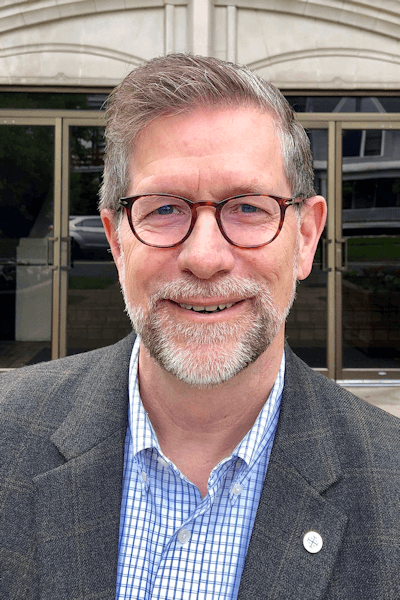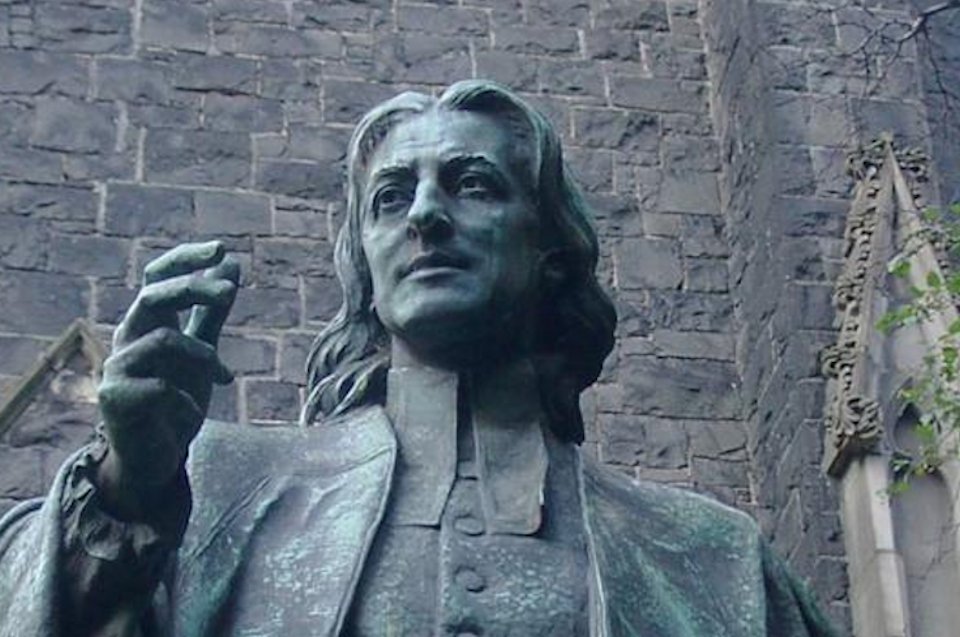What does John Wesley teach United Methodists today on how to live and serve with fellow Methodists with varying opinions? The Rev. Steven W. Manskar, talks about “Christian perfection.”
STEVEN W. MANSKAR
UM News | Many Voices, One Faith

What advice would John Wesley give to United Methodists today?
A good place to look is his book A Plain Account of Christian Perfection. Though section 25 was written in 1763 to address divisions within the London Society,[i] his wisdom about how to live and serve with fellow Methodists with varying opinions on doctrine and practice applies to United Methodists today.
Wesley warned us to “watch and pray continually against pride.”[ii] Pride closes minds to other points of view and information that challenges beliefs and opinions. Pride renders people unteachable. “To imagine none can teach you but those that are themselves saved from sin is a very great and dangerous mistake.”[iii] Pride closes eyes, ears and minds to others. It prevents you from admitting you may be wrong and blocks the possibility of changing your mind.
“Beware of that child of pride, enthusiasm!” Enthusiasm — the word people used in the 18th century to describe religious fanaticism — is spiritual pride. It is “expecting the end without the means.”
“Beware of antinomianism, ‘making void the law,’ or any part of it, ‘through faith.’ Enthusiasm naturally leads to this.” Antinomianism is believing that faith in Christ replaces obeying his teachings. It convinces Christians that the means of grace are not only unnecessary, they are obstacles to faith.
“Beware of sins of omission. Lose no opportunity of doing good of any kind. Be zealous of good works. Willingly omit no work of either piety or mercy.” Works of piety are acts of worship and devotion that help Christians stay in love with God. Works of mercy are acts of compassion and acts of Justice. They are how Christians love God by loving whom God loves.
Charles Wesley summarizes what John Wesley is getting at when he wrote:
Let us plead for faith alone,
Faith which by our works is shown;
God it is who justifies,
Only faith the grace applies.
Active faith that lives within,
Conquers hell and death and sin,
Hallows whom it first made whole,
Forms the Savior in the soul. (United Methodist Hymnal, #385)
“Beware of desiring anything but God. … Be patterns to all of denying yourselves, and taking up your cross daily.” Don’t let the world distract you from pursuing holiness of heart and life. Human beings are creatures of desire. Our desires have much more influence on our behavior than what we think or believe. That’s why Wesley emphasized the importance of habitually practicing the means of grace: works of piety and works of mercy. He knew habits shape desires. When desire is centered on Christ Christians grow in holiness of heart and life and live as Christ’s representatives in the world.
“Beware of schism, of making a tear in the Church of Christ. That inward disunion, the members ceasing to have a reciprocal love ‘one for another,’ is the very root of all contention, and every outward separation. Beware of everything tending to schism. …
“Likewise, if you would avoid schism, observe every rule of the Society, and of the bands, for conscience’ sake. Never omit meeting your class or band; never absent yourself from any public meeting. These are the very sinews of our Society.
“Suffer not one thought of separating from your brothers and sisters, whether their opinions agree with yours or not. Do not dream that anyone sins in not believing you, in not taking your word; or that this or that opinion is essential to the work, and both must stand or fall together.”[iv]
John Wesley would encourage United Methodists to keep centered on Jesus Christ and his mission. Wesley believed self-emptying love is the aim of Christian life and mission. His advice for United Methodists is to resist the divisiveness of pride and ideology. Remember Jesus’ command to “love one another. Just as I have loved you, you also should love one another. By this everyone will know that you are my disciples, if you have love for one another” (John 13:34-35).
Finally, he’d remind United Methodists today that “his followers may the more effectually provoke one another to love, holy tempers, and good works, our blessed Lord has united them together in one body, the Church, dispersed all over the earth; a little emblem of which, of the Church universal, we have in every particular Christian congregation.”[v]
[i] John Wesley, Farther Thoughts Upon Christian Perfection (1763), An Introductory Comment, in Doctrinal and Controversial Treatises II, eds. Paul Wesley Chilcote and Kenneth J. Collins, vol. 13 of The Bicentennial Edition of the Works of John Wesley (Nashville: Abingdon Press, 1976— ), 92-94.
[ii] Ibid., 13:111.
[iii] Ibid., 13:111-112
[iv] Wesley, Works, 13:121.
[v] Wesley, Works, 3:313.
The Rev. Steven W. Manskar is pastor of Trinity United Methodist Church in Grand Rapids, Michigan.
“Many Voices, One Faith” is a forum for sharing theological perspectives on topics of interest in The United Methodist Church. This commentary responds to the question: “What are John Wesley’s essential instructions for Methodists today?”
Last Updated on December 28, 2022

